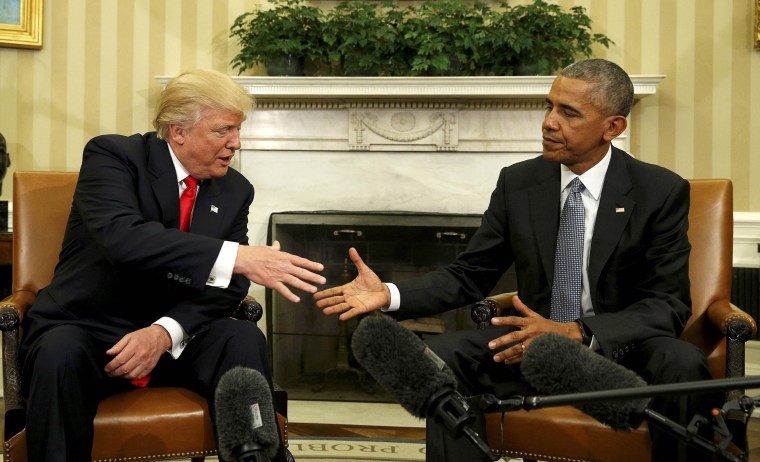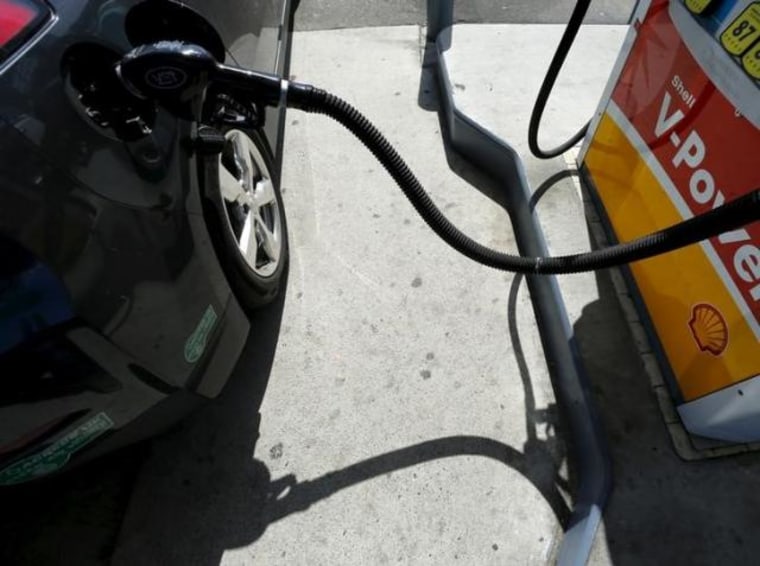In a year where everything from populism to petroleum was in turmoil, 2016 had no shortage of nail-biter financial moments. As it draws to a close, experts reflect on the most significant — and to some, most alarming — economic moments and how they will affect the year ahead.

U.S. Votes in Trump
The markets, like pundits and pollsters, had largely baked into their calculations and forecasts the expectation of a Hillary Clinton presidency. Instead, they got Donald Trump.
Experts predicted that stocks would tumble, but after a brief plunge the morning after Election Day, they boomed instead, buoyed by the prospect that a Republican White House and Congress would deliver corporate tax cuts and roll back regulations.
“The recent market run-up seems the result of optimism about Trump policies to come,” Brookings Institution senior fellow Martin Baily said via email. “Corporations are likely to be more profitable, after taxes.”
While Trump’s message of economic populism and promise gave hope to a wide swath of post-industrial heartland, some economists were less sanguine.
“It’s a net negative for the economy,” said Mark Zandi, chief economist at Moody’s Analytics. “Higher stock prices are a plus, but higher interest rates and the stronger dollar are a negative, and the net impact for the typical American is negative,” he said. While higher borrowing costs and inflation affect everyone, only Americans with enough assets to invest benefit from a higher stock market.
“[I'm] not sure if the optimism is justified,” Baily said. “Many people, myself included, are spooked by the prospect of dismantling climate policy, Dodd-Frank and Affordable Care [Act]. We will see if people like the reality of what they voted for.”
U.K. Votes Brexit
In what looks, in hindsight, like a prelude to the surprise Trump victory in the presidential election, Britain’s vote to leave the European Union was a populist outburst that steered the country into decidedly uncharted economic waters.
“People were going against the idea that globalization was benefiting everyone,” said Terry Simpson, a multi-asset investment strategist at BlackRock. “There definitely needs to be a rewrite of the economic growth script.”
In the immediate aftermath of the vote, markets fell, and the British pound dropped, although the market free-fall many predicted a “leave” vote would usher in hasn’t happened, possibly because the trigger, invoking the Treaty of Lisbon’s Article 50, hasn’t happened yet.
“The reality is, England is still operating under the normal legacy rules,” Simpson said, but the actual unwinding could have greater financial impact. “You might see more potential volatility,” he said.
China Stumbles
For nearly any other national economy, a 7 percent growth rate would be cause for celebration. But when China reported a 2015 growth rate of 6.9 percent last January, investors got worried. That GDP growth was China’s lowest of the past 25 years, and came in spite of the country’s central bank cutting interest rates six times.
“At the beginning of the year, the markets were in turmoil. Markets were, at one point, down 15 percent from their peak,” Zandi said. “That goes largely to China and the problem China had stabilizing its economy.” In mid-February, U.S. markets hit their lows for the year, and oil prices dropped below $27 a barrel.

OPEC Cuts Production
After several attempts, the Organization of the Petroleum Exporting Countries agreed in November on output cuts to reverse a two-year slide in oil prices.
The cartel’s pledge to halt production by 1.2 million barrels a day, plus a commitment from Russia to slow production by another 600,000 a day, will have the ultimate effect of pushing gas prices up 20 to 40 cents next year, said Patrick DeHaan, senior petroleum analyst at GasBuddy.
“As long as there’s a cut that’s significant in size, even if there is some cheating, I think the market will go with the psyche of a production cut being more significant for the number itself,” he said.
Fed Increases Interest Rates
The Federal Reserve raised interest rates a quarter of a percentage point in December, the only increase all year and only the second in a decade, and said it expected three more increases in 2017.
“It sets us on a trajectory of making money a little bit more expensive as you go along over the next two years, and that’ll have an impact on the economy first and foremost, and then on the market,” said Mitchell Goldberg, president of ClientFirst Strategy.
“The U.S. is further along its monetary policy path than the other three big central banks,” he said, which makes for a stronger dollar and challenges for exporters. “There are already a number of big multinational companies that are lowering earnings expectations because of the strong dollar,” he said.
